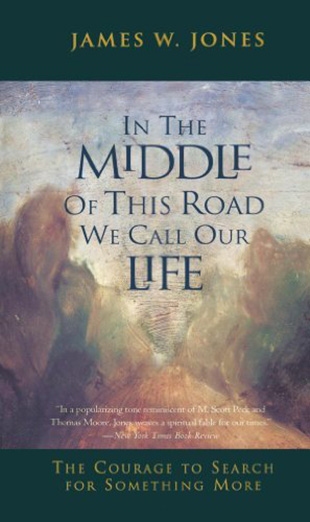"Spirituality is that disciplined inquiry, it is experimenting with our consciousness to discover for ourselves the seeds of divinity within us.
"Suppose for a moment it is true — and this is one thing virtually all the world's religions agree on — that there is within all of us a soul, spirit, atman, Buddha nature, or divine image, and that the purpose of life is to access and develop it. Each person must find for himself or herself the best channel of access and the best symbolic expression of it. The question of finding a spiritual path becomes, in part, To what can I give myself unreservedly? Dangerous? Yes, but equally dangerous is a life without ecstasy, without the numinous, without depth, breadth, passion, meaning, or purpose. Spirituality is process before content. Not memorizing rules, facts, or concepts but freeing the mind and the heart to explore new worlds of insight and connection.
"Paradoxically such freedom is the result of discipline. I am only free to improvise on the piano after I have mastered the discipline of playing scales and chords. Likewise in order to gain freer access to the depths of the inner world, I must master the discipline of silence and learning to listen to myself in new ways.
"Our inner world is often like our outer one — something of a chaos. If we try the simple experiment of attempting to be still and quiet, immediately a host of things comes to mind. We will probably be flooded with random thoughts, memories, emotions, images, and bodily sensations.
"In order to let the depths of the inner world speak, we must be internally silent. But that is very hard to do. One way of facilitating that silence is to try not to suppress the forces that flood our minds. If we try to banish them, they usually fight back. Rather than squelching them, we can simply observe them. Not judge them, not fight with them, not approve or disapprove them, but simply observe them as they pass through our mind. Saying to ourself such things as, Look, now I am thinking about what I must do for supper; now I am feeling angry at my child; now I am aware of a pain in my back; now I am worried about what I have scheduled for tomorrow.
"If we can gradually put aside our natural tendency to evaluate and react to our thoughts and feelings and just observe them, we will find ourselves becoming increasingly detached from them and the observing part of ourself becoming stronger. Not that thoughts and feelings will stop — they won't. But they will not matter as much. When this starts to happen, a silence will begin to come into our mind.
"In that silence, the still, small voice of God can begin to speak. And the deeper structures of the inner world can begin to come through. The still, small voice of God may come in a variety of forms — words, images, or pictures tinged with sacredness; states of serenity and oneness; memories and events seen in anew light. Meditation does not necessarily result in intense emotions but rather in interior states that are more encompassing and unifying than discrete ideas or feelings. This deeper reality will speak to us if we discipline ourself to make room for it."
